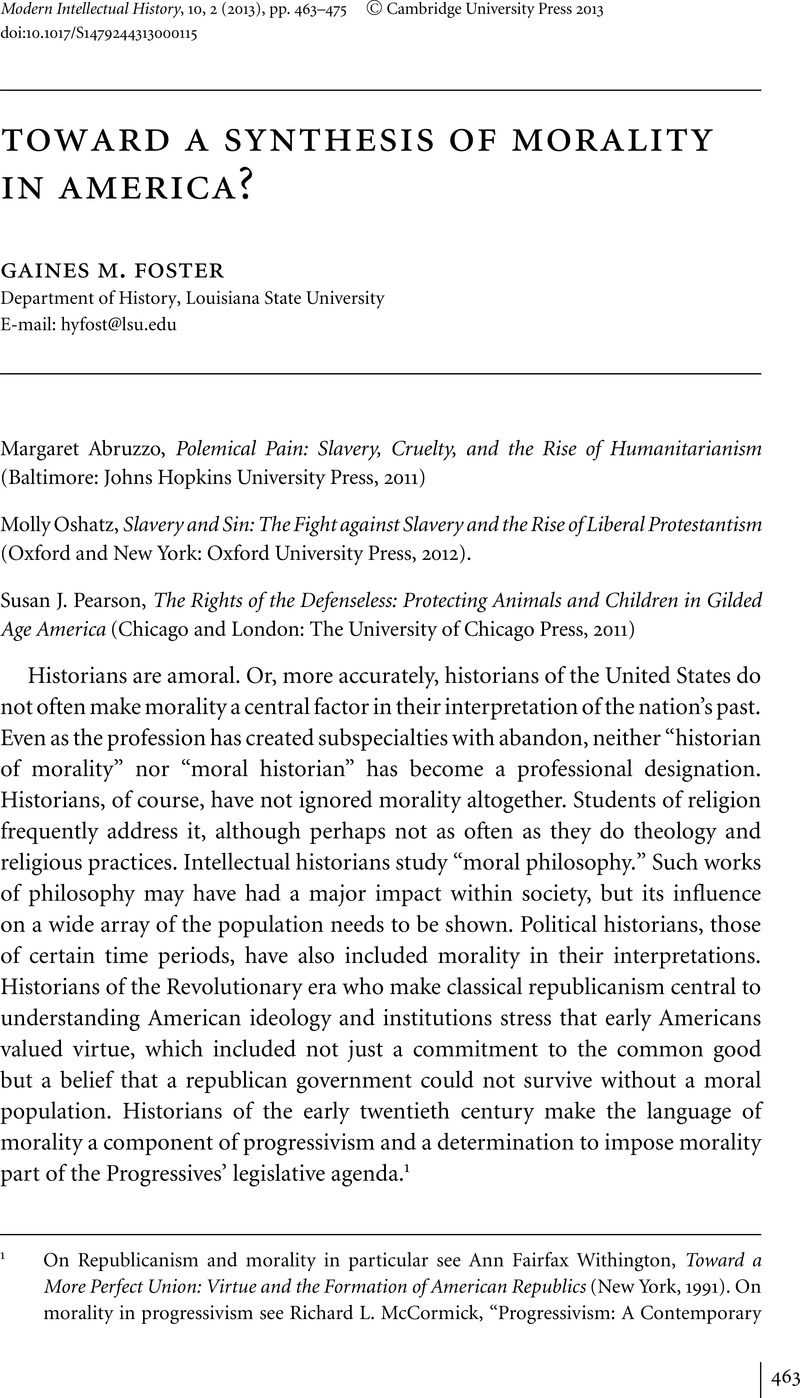No CrossRef data available.
Article contents
TOWARD A SYNTHESIS OF MORALITY IN AMERICA?
Published online by Cambridge University Press: 11 July 2013
Abstract

- Type
- Review Essays
- Information
- Copyright
- Copyright © Cambridge University Press 2013
References
1 On Republicanism and morality in particular see Withington, Ann Fairfax, Toward a More Perfect Union: Virtue and the Formation of American Republics (New York, 1991)Google Scholar. On morality in progressivism see McCormick, Richard L., “Progressivism: A Contemporary Reassessment,” in McCormick, The Party Period and Public Policy: American Politics from the Age of Jackson to the Progressive Era (New York, 1982), 263–88Google Scholar. There are, of course, exceptions to American historians’ tendency to avoid morality as a topic. See, for example, Karen Halttunen and Lewis Perry, eds., Moral Problems in American Life: New Perspectives on Cultural History (Ithaca and London, 1998)Google Scholar.
2 Abzug, Robert H., Cosmos Crumbling: American Reform and the Religious Imagination (New York, 1994)Google Scholar; and Mintz, Steven, Moralists and Modernizers: America's Pre-Civil War Reformers (Baltimore, 1995)Google Scholar emphasize the religious basis of reform, although Abzug puts more stress on it. On the consensus view of the abolitionists see Novick, Peter, That Noble Dream: The “Objectivity Question” and the American Historical Profession (New York, 1998), 338Google Scholar. Pearson, The Rights of the Defenseless, 6–8 has a good discussion of “social control.” For an excellent example of the more sophisticated approach to the role of social forces see Thomas L. Haskell's pathbreaking articles on humanitarianism and capitalism reprinted in Bender, Thomas, ed., The Antislavery Debate: Capitalism and Abolitionism as a Problem in Historical Interpretation (Berkeley, 1992), 107–60Google Scholar. In arguing for greater attention to morality, I in no way mean to diminish the importance of social realties in helping shape morality.
3 One of the best descriptions of the difference between Victorians and modernists, although not focused solely on morality, can be found in Singal, Daniel Joseph, The War Within: From Victorian to Modernist Thought in the South, 1919–1945 (Chapel Hill, 1982), 11–33Google Scholar. Coben, Stanley, Rebellion against Victorianism: The Impetus for Cultural Change in 1920s America (New York, 1991)Google Scholar puts it in the context discussed here.
4 On “conservative” moral reformers see Foster, Gaines M., Moral Reconstruction: Christian Lobbyists and the Federal Legislation of Morality, 1865–1920 (Chapel Hill, 2002)Google Scholar.




